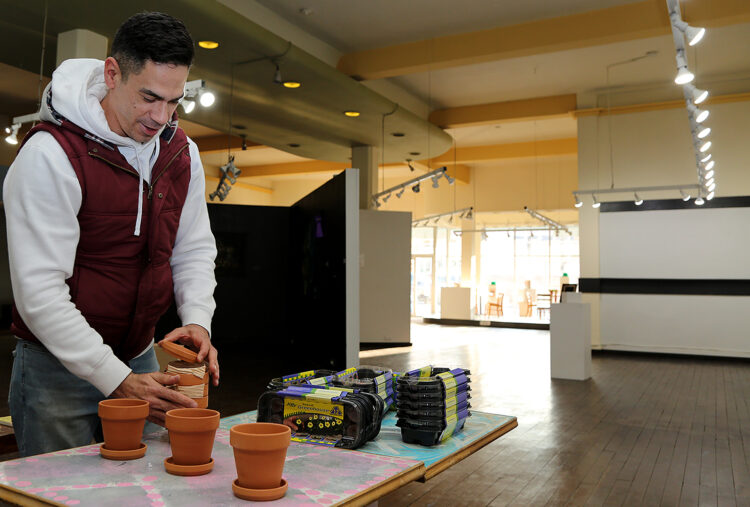“Got to get back to the land, and set my soul free.”
— “Woodstock,” Crosby, Stills, Nash and Young, 1970 version of Joni Mitchell song
(Butler, PA) Individuals in recovery from substance abuse who attend Butler County Community College’s first Hope Night of this spring can work with soil to plant vegetables and herbs and to possibly produce endorphins that “can help to combat depression,” an executive with a Butler County nonprofit organization said.
“Agriculture is very therapeutic and soil is actually an anti-depressant,” said Dr. Sandy Curry, director of Community Action Partnership, Butler. “Physical contact with soil produces endorphins. For people in addiction recovery, we are trying to produce natural endorphins.”
Endorphins “create a feeling of well-being,” according to Harvard Health Publishing.
Curry will discuss the benefits of growing food and of working with soil during “Growing Hope: What Seeds Are You Planting?” – from 6 p.m. to 8 p.m. at the Butler Art Center, 344 S. Main St.
“Growing Hope” is the first of six Hope Nights that BC3 has scheduled in downtown Butler through mid-September and the first to focus on agriculture, said Ken Clowes, BC3’s Community Initiatives Center assistant.
“Getting your hands dirty is good for you. It’s good for your mental health, being part of the soil, the earth, the ground."
Ken Clowes, BC3’s Community Initiatives Center assistant
Hope Nights began in December 2018 and offer activities intended to produce endorphins and to support fellowship for those in recovery from substance abuse.
BC3’s Hope Nights are free and open to the community.
“Agriculture is just fun”
Seeds, soil, small plastic windowsill greenhouses, terracotta containers and acrylic paint to be used to decorate the terracotta containers will be provided at “Growing Hope,” Clowes said.
“Getting your hands dirty is good for you,” Clowes said. “It’s good for your mental health, being part of the soil, the earth, the ground. … In this day and age, we are so easily disconnected from our roots, from being outside, from being connected to nature, and so this is one little extra way that we can do that.
“It’s good for your well-being. Besides being therapeutic, agriculture is just fun.”
Seeds will include those for gourmet lettuce blends, organic lettuce blends, red lettuce and flat-leaf Italian parsley, Curry said.
“We will be talking about living a healthier lifestyle and diet is the foundation for that,” Curry said. “We are going to look at the psychological and physical benefits of growing your own food.”
Hope Nights followed the April 2018 debut of BC3’s Hope is Dope: Reset Your Brain opioid addiction program. Hope is Dope represents the implementation of an objective in the college’s 2017-2022 strategic plan to improve the quality of life in its communities.
BC3’s Hope Nights draw an average of 20 participants and as many as 35, Clowes said.
“We have some people from the community who are in recovery (who attend) and those who are just supportive of those in recovery,” Clowes said. “We have people who work in the field coming to join in or who are volunteers.”
“Feeling like they are part of the community”
Butler County substance abuse treatment centers that transport clients to step-based recovery meetings have also brought clients to Hope Nights, Clowes said.
“The difference here is that they get to focus on having fun and feeling like they are part of the community,” Clowes said. “… Somebody who is in recovery needs to feel like they are part of the community, not an outcast.
“Another part of the reason we do these things is to help reduce stigma. And that’s done by exactly that, by having them engage with other people in the community and feel like, ‘Hey, I’m wanted here. I’m supported here.’”
Additional BC3 Hope Nights scheduled in downtown Butler are “Karaoke and Ice Cream,” May 19; “Pickleball at the YMCA,” June 16; “Cornhole Tournament,” July 21; “Comedy Night,” Aug. 18; and “Stories of Hope,” Sept. 15.
For more information, visit bc3.edu/hope.





